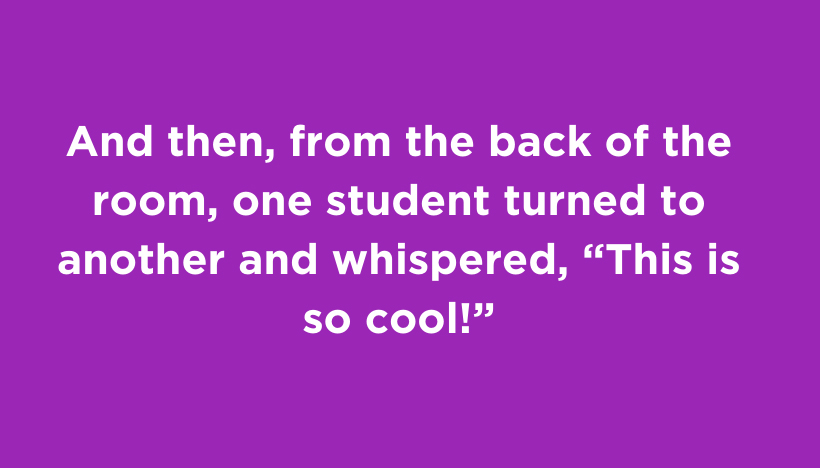The following post is an excerpt from Jaime R. Wood’s Council Chronicle commentary “I know you are reading this . . . ” — Reading a Poem by Adrienne Rich in a Community College Developmental Writing Class”
Two years before I met this group of students, I sat in an auditorium at Central Washington University in Ellensburg, listening to Adrienne Rich read her work. Her voice, a gentle force, resonated from the armchair where she sat, a small weathered woman whose presence struck us all silent.
I’d gone with a group of fellow writers, MFA students from Eastern Washington University, and after getting our books signed (mostly as a way of being closer to the poet) we left refreshed, enlivened by Rich’s words and spirit. I asked her to sign my copy of An Atlas of the Difficult World, not knowing for sure where I was going next or whether I would find a teaching job after graduation.
Little did I know that I would be living Rich’s Atlas of the Difficult World in my first quarter teaching developmental writing in Portland, Oregon, area community colleges, or that I would find a way, no, a necessity, for poetry in my classes. I didn’t know for sure, of course, whether my students would appreciate Rich’s poem, but I did know one thing: those who kept showing up were hungry for more than what they’d always been given. I didn’t have much to lose, I thought.
“I want to share a poem with you tonight,” I began as I handed out a copy of “(Dedications)” for each student.
I heard a couple grumbles echo around the room. That’s to be expected, I thought. After all, I’m sure their experience with poetry is limited and probably negative. “I’ll read it out loud as you read along, and all I’d like is for you to underline words or phrases that interest or confuse you as I read.” The room was still as the last few lines spilled forth:
I know you are reading this poem which is not in
your language
guessing at some words while others keep you reading
and I want to know which words they are.
I know you are reading this poem listening for something,
torn between bitterness and hope
turning back once again to the task you cannot
refuse.
I know you are reading this poem because there is
nothing else
left to read
there where you have landed, stripped as you are.
(lines 33–41)
And then, from the back of the room, one student turned to another and whispered, “This is so cool!” Maybe not every student needed to hear that poem that night, but someone did, and I felt I had won by giving in to the urge to share my passion with my students.
At the end of the quarter, I asked students to write me a letter reflecting on their learning. One quiet young man shared this about the assignment in which I asked them to write a paragraph responding to Rich’s poem:
“One of the best assignments was the poem paragraph on ‘An Atlas of the Difficult World’ by Adrienne Rich. This assignment was quite a mind opener. The author used a statement which is repeated and used to apply to everyone. Most of my assignments throught (sic) my life, I was never able to attach a meaning, which made this assignment different than all the others.”
If Adrienne Rich could have been a fly on the wall in that developmental writing class, I think she would have been incredibly proud of my students’ perseverance and bravery in the face of all that accosts them in a day. They are indeed an atlas of the difficult world. So am I and so are you.

Jaime R. Wood is a teaching associate for the Office of Academic Innovation at Portland State University. Her book Living Voices: Multicultural Poetry in the Middle School Classroom is available from NCTE.
It is the policy of NCTE in all publications, including the Literacy & NCTE blog, to provide a forum for the open discussion of ideas concerning the content and the teaching of English and the language arts. Publicity accorded to any particular point of view does not imply endorsement by the Executive Committee, the Board of Directors, the staff, or the membership at large, except in announcements of policy, where such endorsement is clearly specified.

